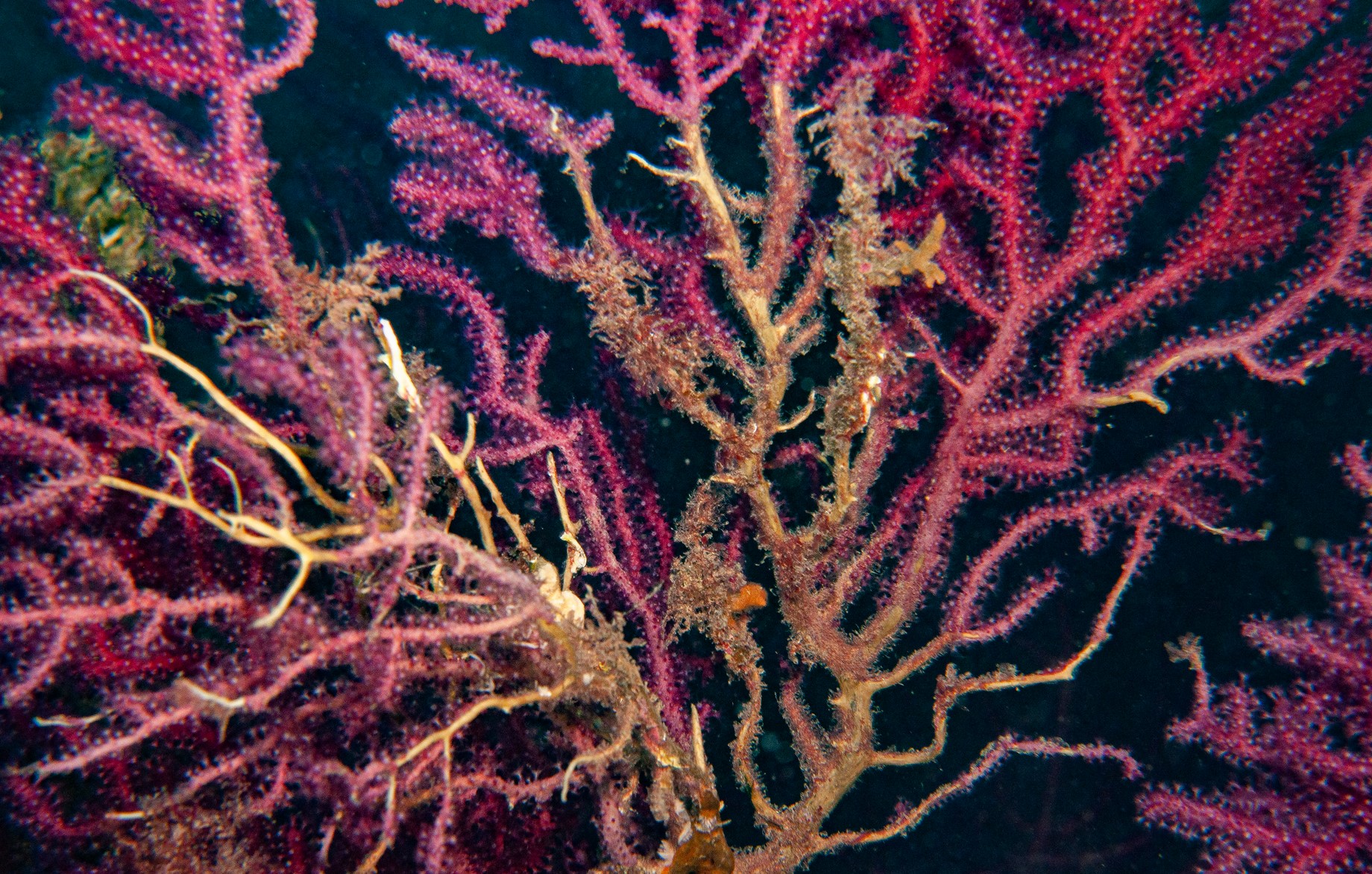Noticia

La crisis climática pone en jaque a las poblaciones de corales del Mediterráneo
Las olas de calor marinas reducen en algunos casos la biomasa de estas poblaciones entre un 80 y un 90%.
28/01/2022
Un nuevo estudio realizado por científicos y científicas del proyecto Atención Corales ha revelado que las olas de calor marinas asociadas a la crisis climática están llevando al colapso de las poblaciones de corales del Mediterráneo, reduciendo en algunos casos su biomasa entre un 80 y un 90%.
Según el trabajo, las poblaciones de corales del Mediterráneo, que son fundamentales para el funcionamiento del coralígeno, uno de los hábitats más emblemáticos de este mar, podrían ser incapaces de recuperarse del impacto recurrente de estos eventos extremos durante los que la temperatura del agua alcanza niveles muy elevados durante días e incluso semanas.
Se trata del primer estudio que evalúa la capacidad de recuperación a largo plazo de poblaciones de las dos especies de corales más emblemáticas del Mediterráneo: la gorgonia roja (Paramuricea clavata) y el coral rojo (Corallium rubrum), que proporcionan hábitats complejos esenciales para una gran diversidad de fauna asociada. Por ello, comprender su capacidad de recuperación frente a las cada vez más frecuentes e intensas olas de calor es crucial.
EVENTOS DE MORTALIDAD MASIVA
La crisis climática está afectando gravemente a los ecosistemas marinos de todo el mundo y el Mediterráneo no es una excepción. En concreto, las olas de calor marinas asociadas a esta crisis están causando eventos de mortalidad masiva en todos los ecosistemas litorales de esta cuenca. Entre las especies más afectadas se encuentran los corales mediterráneos.
A pesar de que numerosos estudios han investigado los impactos inmediatos de las olas de calor marinas sobre las especies de corales, se sabe muy poco acerca de su capacidad de recuperación a largo plazo. El principal motivo es que, al tratarse de especies generalmente muy longevas (> 100 años en algunos casos) y con dinámicas poblacionales lentas, es decir, organismos con tasas de crecimiento y reclutamiento bajas, hacen falta series temporales largas (décadas) para poder valorar su capacidad de recuperación.
Para la elaboración de este estudio, el equipo científico analizó los resultados obtenidos en un seguimiento a largo plazo de distintas poblaciones de corales que se vieron afectadas por un gran evento de mortalidad masiva causado por una ola de calor ocurrida en el año 2003 en el área marina protegida de Scandola (Córcega, Francia). En concreto, se analizaron datos sobre el estado de estas poblaciones (densidad, estructura de tallas y biomasa) recogidos durante los siguientes 15 años por parte de investigadores del grupo de investigación Medrecover, formado por expertos del ICM-CSIC y de la UB, entre otros centros.
Desafortunadamente, los resultados mostraron que, lejos de recuperarse, todas las poblaciones analizadas han tendido al colapso desde que fueron afectadas por la ola de calor del 2003. De hecho, tras 15 años, estas poblaciones se pueden considerar prácticamente extintas desde un punto de vista funcional.
“Hemos advertido pérdidas de biomasa medias respecto a la biomasa inicial de en torno a un 80% para las poblaciones de gorgonia roja, y de hasta un 93% en el caso de la población estudiada de coral rojo” , explica Daniel Gómez, investigador del ICM-CSIC y uno de los autores del trabajo.
Por su parte, Joaquim Garrabou, también investigador del ICM-CSIC y otro de los autores del trabajo, alerta de que “estos datos son muy preocupantes para la conservación de estas especies emblemáticas, y nos indican que los efectos de la crisis climática se están acelerando con consecuencias evidentes para los paisajes submarinos, donde la pérdida de los corales equivale a la de árboles en los bosques” .
__
Puedes leer la nota de prensa completa aquí.
Fotografía de Joana Colomer - CIB (ver observación)
